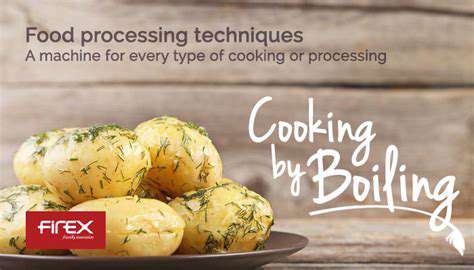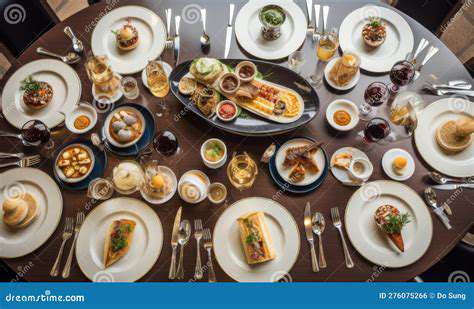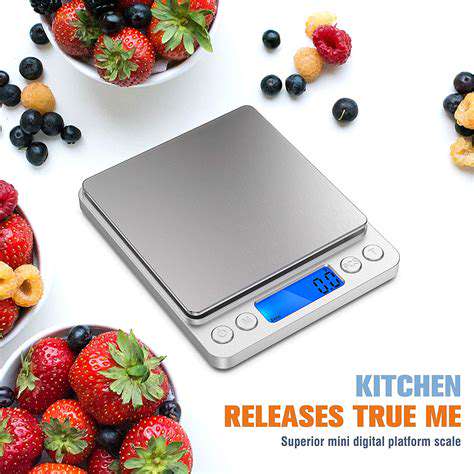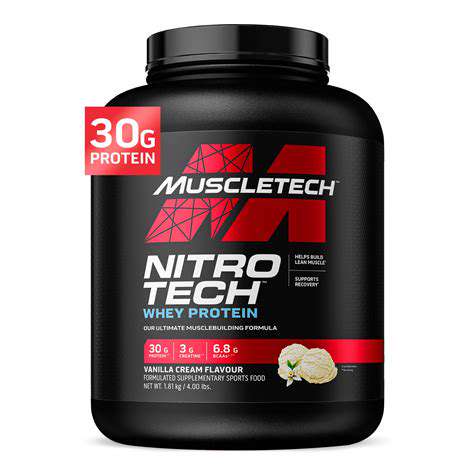How to Make Perfect Hard Boiled Eggs
Factors Affecting Cooking Time
Ever wonder why your eggs turn out differently each time? Several variables come into play. Water temperature is crucial - cold water means longer cooking. Egg age affects texture too; fresher eggs hold their shape better but can be trickier to peel.
At high altitudes, water boils at lower temperatures, adding minutes to your cooking time. This altitude adjustment is often overlooked but makes all the difference. Keep a kitchen timer handy and adjust based on your specific conditions.
Preparing the Eggs for Boiling
Preparation separates the amateurs from the pros. Start with a cold water rinse to remove debris. Then comes the secret technique: gentle tapping to create micro-cracks. These tiny fractures prevent explosive cracks during boiling while helping the shell release later.
Some chefs add vinegar to the water, claiming it helps with peeling. While the science is debatable, the psychological comfort of this ritual might be worth it. Just don't skip the rinsing - nobody wants eggshell grit in their salad.
Boiling Methods
The classic stovetop method remains king for consistency. Microwaving might seem convenient, but uneven cooking leads to texture nightmares. For perfect results every time, use a heavy-bottomed pot that maintains steady heat.
Steaming is gaining popularity as an alternative method. The gentler heat transfer supposedly makes for easier peeling, though it requires careful timing. Whatever method you choose, resist the urge to peek - maintaining that steady temperature is key.
Cooling and Peeling Techniques
The ice bath isn't just a suggestion - it's mandatory. This shocking temperature change creates steam pockets between shell and egg, making peeling a breeze. Don't skimp on the ice, and give them at least 5 minutes to fully cool.
Peel under running water for best results. The water helps separate membrane from egg, reducing frustration. Start at the air pocket (the flatter end) for easiest access. If you're peeling a dozen, keep the cooled eggs in the fridge until ready to use.
Maintaining Egg Quality
Storage makes or breaks your hard-boiled eggs. An airtight container prevents odor absorption in your fridge - nobody wants garlic-scented eggs. For maximum freshness, consume within 5 days.
Mark your storage container with the cooking date. If the eggs develop a sulfur smell or slimy texture, it's time to say goodbye. Remember: properly stored eggs should still taste fresh days later.
Preparing Your Eggs for Boiling
Choosing the Right Eggs
Farm-fresh eggs might seem ideal, but slightly older eggs actually peel better. The air pocket expands over time, creating natural separation. Look for clean, uncracked shells with uniform color.
If buying store eggs, check the Julian date (the 3-digit number on the carton). Lower numbers mean fresher eggs. For boiling, aim for eggs that are about a week old - the sweet spot between freshness and peelability.
Preparing the Eggs for Boiling
Hygiene comes first. Wash hands thoroughly - eggshells are porous and can transfer bacteria. Use lukewarm water for rinsing; extreme temperatures can cause premature cracking.
Some chefs recommend bringing eggs to room temperature before boiling to prevent cracking. While not strictly necessary, it does help with more even cooking. Just don't leave them out more than 2 hours.
Boiling Techniques for Different Results
Texture preference dictates timing. For jammy yolks with set whites, aim for 6-7 minutes. Traditional hard-boiled needs 9-12 minutes depending on size. Use a timer religiously - seconds count.
The salt debate continues. While it raises the boiling point slightly, the practical difference is minimal. More importantly, it seasons the eggs and can help identify cracks (you'll see white leakage).
Cooling and Peeling Your Eggs
The ice bath technique is non-negotiable. Shocking the eggs stops carryover cooking that can lead to rubbery textures. For extra insurance, add the eggs to ice water straight from the boil.
Peeling technique matters: roll the egg gently to crack the shell all over before starting. The membrane should stay intact while the shell fragments. If struggling, peel underwater - it helps lift stubborn bits.

Quality materials make all the difference, whether in puzzles or eggs. Just as premium puzzle pieces fit better, properly prepared eggs deliver superior results. The attention to detail separates mediocre outcomes from exceptional ones.
![First Baby Food Recipes [Purees & Introducing Solids]](/static/images/28/2025-04/SafetyConsiderationsforBabyFoodPreparation.jpg)










